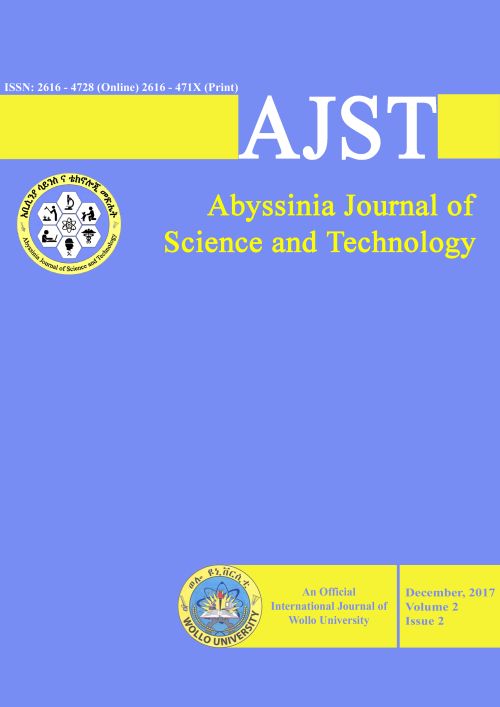Main Article Content
Evaluation of bread wheat (Triticum aestivum L.) genotypes under moisture deficit conditions
Abstract
Wheat is one of the most important cereal crop grown in the highland areas of Wollo. The grain yield remains extremmly low as compared to other wheat grower countries due to different production constraints like the use of low yielder varieties across different agro-ecologies of the country. The objective of the study was to identify stable and high yielding, early maturing bread wheat genotypes for moisture stress conditions. Sixteen bread wheat genotypes including the standard and local checks were evaluated using Randomized Complete Block Design at Geregera, Kon, Dihana and Lalibela during 2010 and 2011 main cropping seasons. The genotypes were evaluated using different yield related traits like days to heading and maturity, plant height, biomass yield, grain yield and 1000 kernels weight. Data were analyzed using additive main effects and a multiplicative interaction and genotype by environment interactions biplot stability measuring techniques, grain yield stability performances of genotypes. The results revealed that “Vorobeycmss96y02555-040Y-020m” genotype was the best among the tested genotypes on its earliness, gave high yield (3341 Kg ha-1). The selected genotype (Vorobeycmss96y02555-040Y-020m) showed yield advantage of 18.4% and 36.6% over recently released variety and farmers’ variety, respectively. This variety was highly adaptable to moisture deficit areas and resistant to yellow rust. In conclusion, this variety was suitable for moisture deficit wheat growing areas and recommended in the tested districts and similar agro ecological zones of the region in particular and in the country in general.







